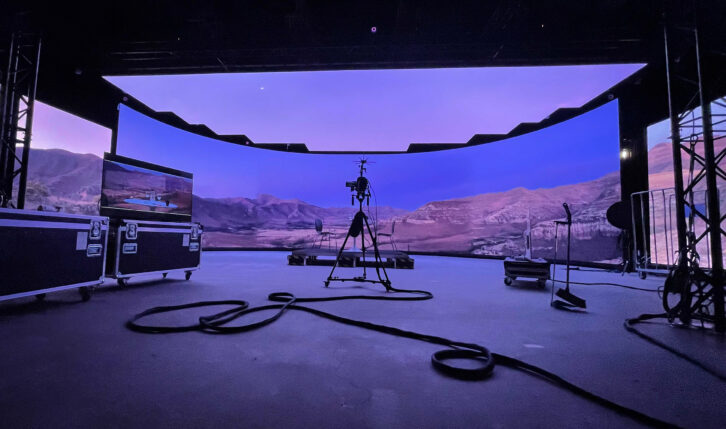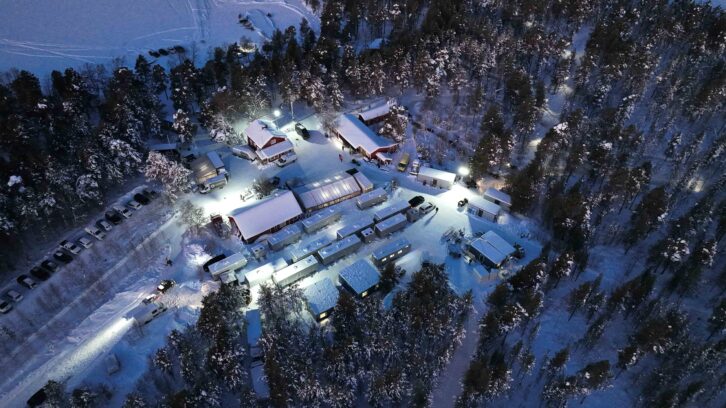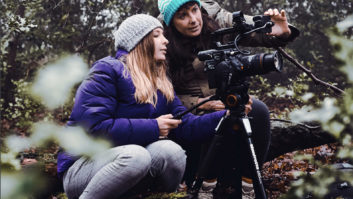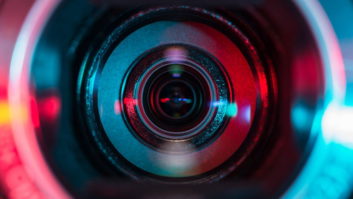Audiovisual Producers Finland (APFI) is the Finnish TV and film association, with members working across the production space, including film studios and rental sites.
As part of our focus on sustainability throughout April, TVBEurope spoke to three APFI members, Angel Film, which provides studios, equipment and crew; Fireframe, a studio facility based in Helsinki; and Valofirma which offers studios and rental sites as well as rental products.
What are you hearing from clients in terms of their sustainability requirements?
Olli Korpiala, CEO, Angel Film (OK): Our clients are seeking greener ways to produce content all the time, it is now a permanent trend. The large international operators already have very sophisticated ecological requirements they wish their local partners to meet. Finnish production companies are also aware of the requirements of green filmmaking. Finnish material and local guides have been released during the last few years. In 2022, APFI launched albert’s eco-production tool which has had a good impact in spreading awareness of sustainable requirements in audiovisual productions.
Minttu Viitanen, administrative lead at Fireframe (MV): Our clients are more and more pressing the importance of sustainability in productions and in fact, sustainability is often the decisive factor for choosing our ICVFX virtual production studio over a more traditional way of production. Cutting travelling and accommodation, and effectively carbon emissions, is most certainly seen as the way of the future. Minimising the carbon footprint by shooting in an LED studio seems to be the most important sustainability requirement for our clients but not the only one. They also have requirements to meet in efficient waste management, eliminating single-use plastic, catering offering vegetarian food options and minimising paper use in production office practices.
Anni Wessman, chief marketing officer at Valofirma – The Light House (AW): With the introduction of albert in Finland, it’s clear production companies will more and more be requiring data from us to factor in on their carbon calculations for their projects. Our emissions mostly consist of electricity and logistics, and we can anticipate what data must be gathered and consequently provided. And since logistics usually accounts for the largest portion of a production’s footprint, environmental sustainability has been incorporated into our operational planning. In addition to environmental sustainability, economic, social, and cultural sustainability are things clients are becoming more and more in tune to. It’s very commonplace these days in client meetings to discuss things like accessibility and equality in addition to what environmentally friendly equipment options like battery-powered generators we have available.
How are you helping clients to meet those requirements?
OK: Angel Films has an EcoCompass certificate for the environmental management system (EMS), which is under review every year. This system is based on environmental legislation and European ISO 14001 environment standard, and the programme is under continuous development. Listening to our customers is the key to successfully helping them in meeting their green objectives and we are happy to help by providing them with suitable recycling options and tools to measure their wastage etc. We are constantly looking for ways to encourage productions to make greener choices and offer tools for their green development. We strive to be aware of the green filmmaking innovations abroad and look for ways to offer them to our clients.
MV: Fireframe offers an ICVFX studio service in Helsinki for clients producing films, TV shows, commercials, still shoots, gaming event materials and other related materials. Fireframe Studios also produces original content which is always designed to be shot almost entirely in our IC-VFX studio with virtual surroundings and set pieces.
By shooting in a single studio location, we can significantly reduce travel and costs associated with it and thereby lessen the carbon footprint of a tentpole movie, as travelling and transporting crew and equipment accounts for about 50 per cent of total emissions (Albert’s Screen New Deal Report).

Despite the high electricity consumption of LED volume, Fireframe Studios exclusively uses 100 per cent emission-free energy, which is certified by the European Guarantee of Origin system. Not only do we offer a sustainable way of shooting and using emission-free energy, but we also put a significant effort into waste management, recycling, eliminating single-use plastics, minimising paper use, heat collection and reuse, and using local subcontractors who share our green values.
Fireframe uses local subcontractors and sublets permanent office space and production areas for key partners to minimise travel and transportation. Our studio premises have a ventilation system with built-in heat collection and reuse to minimise energy waste. Fireframe has reduced its chemical use to a minimum and environmentally friendly cleaning products are always favoured.
In collaboration with Clonet Oy, we are in the process of conducting comprehensive and accurate carbon footprint calculations for the studio’s general use as well as for a single production produced in Fireframe studios.
AW: We do a variety of things:
Our headquarters, warehouse and studios use 100 per cent renewable energy. Currently, there are 242 solar panels on the roof of our premises. We get renewable energy from the solar panels for, among other things, lighting the studios and charging batteries. On average, the panels net 66 kilowatts of electricity per year, which equates to 35.5 tons of avoided carbon dioxide emissions annually.
We have several electric car charging stations in our parking lot.
We have invested heavily in low-emission LED technology, where e.g., the output of the light fixtures in relation to their energy consumption is superior, colour filters aren’t required as much, and above all, the wireless control allows for more fine-tuned work. We have by far the largest inventory of various battery-powered generators in Finland and are still the only rental company in the Nordics that offers the largest Voltstack 2k and 5k battery generators to replace small putt-putt generators. Our selection of rental vehicles also includes a battery-powered ATV. 24 of our 26 vehicles are Euro 6 class. The emissions of Euro 6 class cars are up to more than 50 per cent lower than emissions in ordinary diesel cars.
How can TV and film technology vendors help you meet sustainability requirements?
Emma Österman, marketing and office manager at Angel Films: As provider of studio and equipment rental services, we encourage producers to manage their set piece waste more accurately. We also have arranged better sorting of waste- possibilities for the productions. In the future, we hope to only use electric vehicles. As an experienced and well-known service provider, Angel Films has an opportunity to deliver information and work as an information hub for all areas related to green filmmaking and sustainable development of the field, and making new information accessible to all.
MV: Fireframe is currently in the process of establishing baselines for energy consumption, waste management and recycling. These baselines will be updated annually and shared with our clients and partners to ensure that Fireframe meets its sustainability targets.
Our partner vendors can help us meet those sustainability requirements by committing to the same baselines in their practices and by accurately measuring the environmental impact of their products and services and sharing that data with us. We encourage open discussion and information sharing on environmental matters within the industry, and believe that industry-wide baselines and goals can help drive the industry towards greater sustainability.
We also recognise the importance of technology vendors in this effort. By prioritising research and development efforts on product energy efficiency, product durability and material recycling, technology vendors can help everyone in the industry improve their sustainability practices and move towards a greener future. We are committed to working with all of our partners to achieve these goals and create a more sustainable future for all.

AW: How for example battery powered generators cope in a climate like Finland’s is key. Not everyone is aware that their efficiency drops like crazy in freezing temperatures. We look forward to technology developing so battery-powered equipment can last longer on winter shoots. We also look forward to batteries being manufactured with more ethical material in the future, as there is definitely room for improvement there.
Overall mindset is important, too. Being more sustainable doesn’t have to be more expensive, it’s just a different way of doing things.







